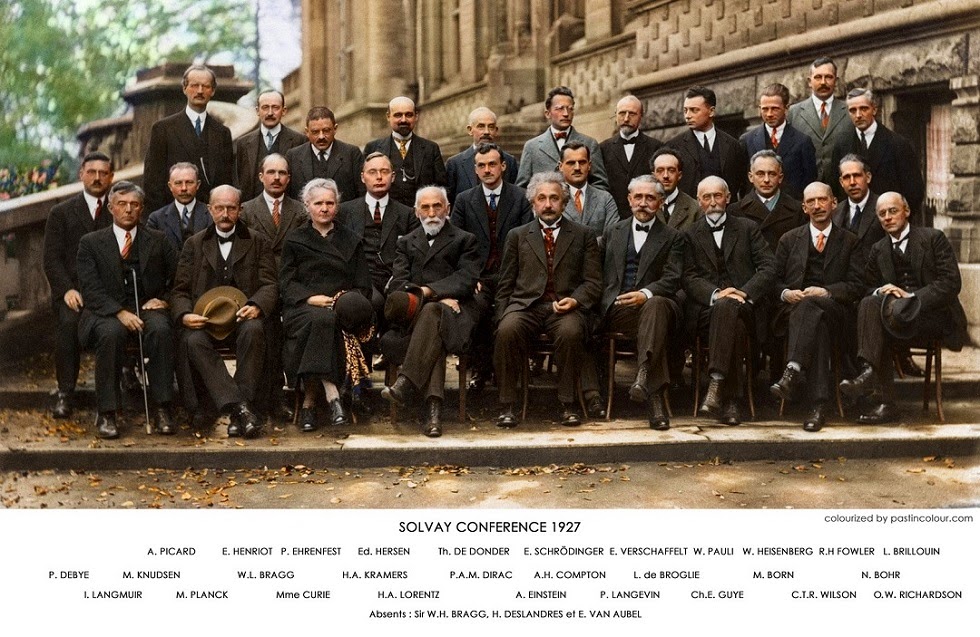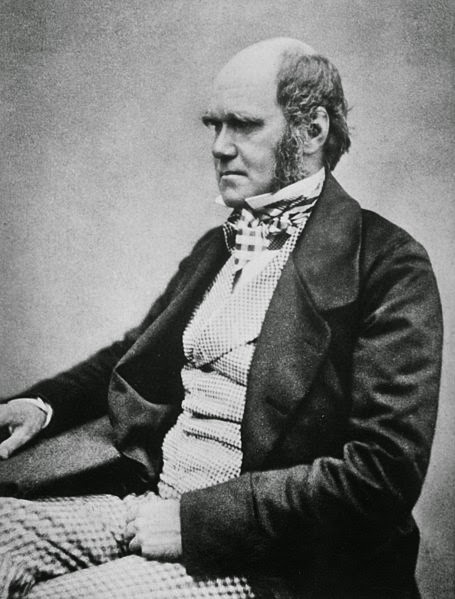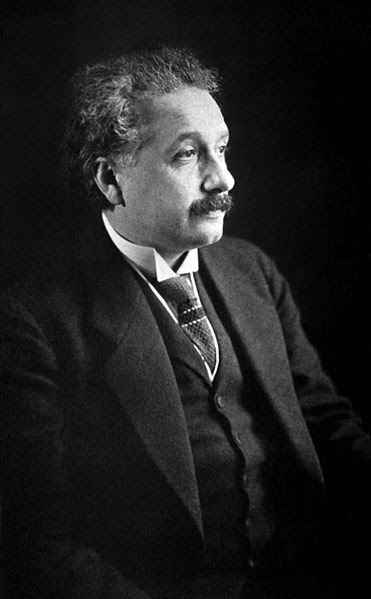
Our understanding of the world around us and the world that we have come to inhabit, Science and technology have continually modified human existence through the engineering process. As a profession the scientist of today is widely recognized. Scientists include theoreticians who mainly develop new models to explain existing data and predict new results, and experimentalists who mainly test models by making measurements — though in practice the division between these activities is not clear-cut, and many scientists perform both tasks.
Great philosophers, theoreticians and masterminds that existed in the ancient Greek era to the present day scientists, we’ve seen inexplicable abilities that helped us define our existence and human life. Their names are engraved in the sands of time for their work in the welfare of mankind with different inventions that has made our modern lives easy. The following list commemorates 10 of the greatest scientists of all time.
10. Louis Pasteur (1822-1895 AD)
Louis Pasteur, French chemist and microbiologist, is the man behind the process of pasteurization, the reason why we are able to drink milk without breeding cows. He explained about biogenesis and proposed a theory named as the “Germ Theory”. Pasteur made discoveries in vaccination and created vaccines for rabies and anthrax. He also studied the causes and prevention of diseases, thus saving many lives. Pasteur’s discoveries in the field of chemistry include those on asymmetry of crystals and racemisation. All of this led to Pasteur being titled the “father of microbiology”. His breadth of accomplishment and approaches in different fields of discoveries and inventions makes him a giant genius. He died in 1895.

9. Michael Faraday (1791-1867)
Born on 1791, British citizen Michael Faraday was a son of a blacksmith who had to leave school in the fourth grade.It started working as a bookbinder and taught himself to read and writer. Faraday is specially known for his discoveries of electromagnetic inductions and rotations, field theory, dia-magnetization and the magneto-optical effect. This humble genius invented the electric motor and Faraday’s ring. Faraday also published research papers optical deceptions, condensation of gases and isolation of benzene from gas oils. He also wrote books on ” Experimental Researches in Electricity” and the “Chemical history of the Candle”. Faraday died on 1867.
8. Galileo Galilei (1564-1642 AD)
Galileo is most famously remembered for his advancements in astronomy. An Italian physicist, astronomer, mathematician and philosopher he improved the telescope and made significant astronomical observations such as the confirmation of the phases of Venus and discovery of satellites of Jupiter. He also discovered the law of pendulum as he watched a chandelier swing in the cathedral of Pisa. He wrote ‘Two New Sciences’ which comprised descriptions of kinematics and strength of materials and led him to be called “Father of Modern Physics”. Galileo became blind in his old days and died in the year 1642.
7. Niels Henrik D Bohr (1885-1962)
Niels Bohr, a Danish physicist, was awarded the Nobel Prize in 1922 for his work on atomic structure and quantum theory. Bohr is equally famous for the Bohr model of the atom, which states that the energy levels of the atoms are discrete and that electrons revolving around the nucleus in orbits, can jump from one energy level to another releasing energy. Bohr also has an element named after him, ‘Bohrium’, earlier named as ‘hafnium’. Bohr was a part of the British mission to the Manhattan project and also a played a role in the established of CERN. He died in the year 1962.
6.Thomas Alva Edison (1847-1931)
Thomas Alva Edison was born in 1847. Excelled as both scientist and inventor, Edison patented a whopping total of 1,093 inventions in his life time. Most of the inventions that came from Edison are batteries, phonographs, cement, mining, telegraphs, lights and powers. He also improved the telephone made by Graham Bell and invented the kinetoscope that was used for viewing moving films. He was seen working almost more than 20 hours a day. Edison masterminded the digital voting system with his electro-graphic vote recorder for the legislative of the parliament. He also proposed ideas on preserving fruits by keeping it in vacuum. Edison pioneered the idea for storage batteries that was later used by Henry ford in his automobile. “Genius is one percent inspiration and 99 percent perspiration” is one of the most famous quote by this genius. He died in the year 1931.
5. Marie Curie (1867-1934 AD)
Marie Curie holds record for the first female to be awarded with a Nobel Prize. Inventor and scientist Curie was born as the youngest of five children in the year 1867 in Warsaw, Poland. She invented the first mobile X-ray machine which helped to check the injured soldiers in the battlefield. Radium is another great invention from her. Curie experimented different elements to check their radio activity and found thorium. She also invented the pitch-blend which was the source of radiation in a mixture more powerful than uranium or thorium. She is also called ” the mother of atom bomb” with her invention of the radio active materials. During World War I, Curie set up France’s first radiology centre and also developed mobile radiography vehicles and units that helped save many soldiers’ lives. But unfortunately, this continued exposure to radiation led to aplastic anaemia and she died of it in 1934.
4. Charles Darwin (1809-1882)
Charles Darwin has been described as one of the most influential figures in human history. Darwin, an English naturalist and zoologist, pioneered evolutionary theory and evolutionism. Collected evidence over 20 years, and published conclusions in On the Origin of Species (1859). He explained that all life has descended from common ancestors and that evolution has taken place through a process called natural selection. This is the dominant scientific explanation of diversity of life. He died in the year 1882.
3. Sir Issac Newton (1643-1727 AD)
Born on 1643 in Woolsthrope, England, Sir Issac Newton is best known for his law on gravitation. He is widely regarded as one of the greatest scientists of all time. Newton’s contribution to science is wide and unparalleled. His field of work such as the laws of motion is still being followed in schools and colleges as the basis of scientific understanding. His genius can be gauged from the fact that he discovered gravity from the simple act of an apple falling from the tree. Newton also validated the heliocentric model of the cosmos, built the first telescope, formulated empirical law of cooling and studied the speed of sound. As a mathematician Newton contributed to infinitesimal calculus, power series, binomial theorem and method for approximation of roots of a function. He was knighted with the title Sir by Queen Anne in 1705. Newton died in 1727.
2. Albert Einstein (1879-1955 AD)
Born on 1879 in Ulm, Einstein is considered as one of the greatest revolutionary scientist the world has ever known. The “Man of Century” has some spectacular works in physics which even makes him the father of modern physics for his contribution in developing the general theory of relativity. The world’s most famous equation E=mc2 on which the bomb is based comes from his theory. One of the greatest scientist of the 20th century, Einstein’s Special theory of relativity revolutionized physics which even challenged the scientists at CERN. He was awarded the Nobel Prize in 1921 for the discovery of the law of photoelectric effect. Einstein’s letter to President Roosevelt in 1939, alerting him of possible nuclear weapons, is supposed to be a key stimulus in the development of the atomic bomb by the USA. Einstein considers this to be the biggest mistake of his life. Einstein died on 1955 in Princeton.




No comments:
Post a Comment